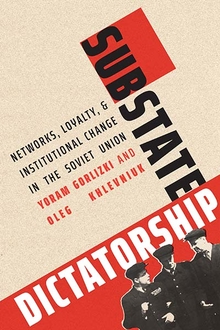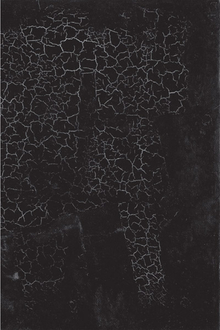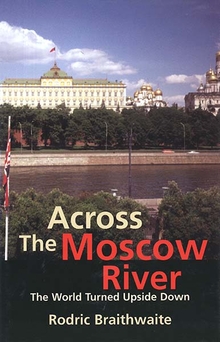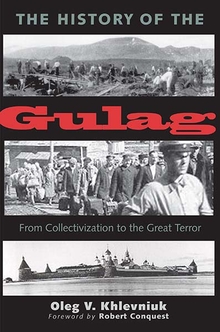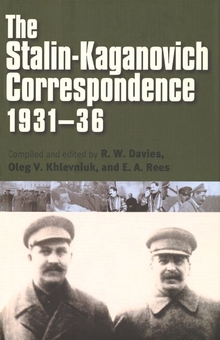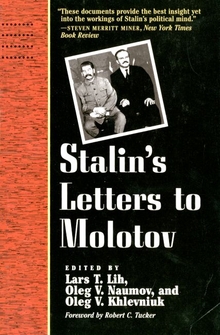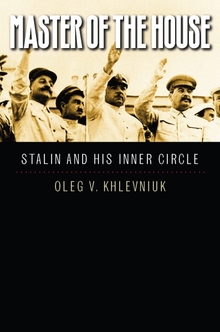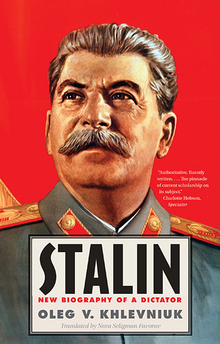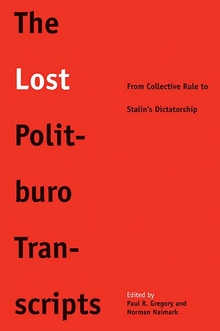Substate Dictatorship
WARNING
You are viewing an older version of the Yalebooks website. Please visit out new website with more updated information and a better user experience: https://www.yalebooks.com
Networks, Loyalty, and Institutional Change in the Soviet Union
Yoram Gorlizki and Oleg Khlevniuk
An essential exploration of how authoritarian regimes operate at the local level
How do local leaders govern in a large dictatorship? What resources do they draw on? Building on recent innovations in the theory of dictatorship, Yoram Gorlizki and Oleg Khlevniuk examine these questions by looking at one of the most important authoritarian regimes of the twentieth century. They show how Soviet regional leaders, lacking Stalin’s direct access to the means of repression, resorted to alternative strategies—especially through political exclusion and control of information—to build the local networks they needed to rule. The authors suggest that making sense of these networks is key to understanding how the dictatorship as a whole operated. Analytical scrutiny provides important clues to how the institutions of dictatorship changed over time, how conflicts within it were resolved, and how certain central policies, such as on the management of ethnic diversity, were implemented.
How do local leaders govern in a large dictatorship? What resources do they draw on? Building on recent innovations in the theory of dictatorship, Yoram Gorlizki and Oleg Khlevniuk examine these questions by looking at one of the most important authoritarian regimes of the twentieth century. They show how Soviet regional leaders, lacking Stalin’s direct access to the means of repression, resorted to alternative strategies—especially through political exclusion and control of information—to build the local networks they needed to rule. The authors suggest that making sense of these networks is key to understanding how the dictatorship as a whole operated. Analytical scrutiny provides important clues to how the institutions of dictatorship changed over time, how conflicts within it were resolved, and how certain central policies, such as on the management of ethnic diversity, were implemented.
Yoram Gorlizki is professor of politics at the University of Manchester. Oleg Khlevniuk is professor of history and leading research fellow of the International Center for the History and Sociology of World War II and Its Consequences at the National Research University Higher School of Economics (Russian Federation).
“This is a pathbreaking study of how the Soviet political system worked in the postwar era. Gorlizki and Khlevniuk have once again demonstrated their absolute mastery of the political history of the Soviet Union.”—Alan Barenberg, author of Gulag Town, Company Town: Forced Labor and Its Legacy in Vorkuta
“Remarkable. The authors integrate contemporary political science and political theory in their analysis of vast historical material.”—Arturas Rozenas, New York University
“A major contribution to the study of Soviet history and a must read for anyone interested in the rise, functioning, and demise of dictatorial and authoritarian regimes worldwide. A timely contribution indeed!”—Serhii Plokhy, Harvard University
“No dictator rules alone. To understand Russia from Stalin, Khrushchev, and Brezhnev to the regime’s decline, collapse, and dissolution, Gorlizki and Khlevniuk argue, is to appreciate the many dictatorships that were the Soviet Union. This important book marshals the best that history and social science have to offer to elucidate the anatomy of the Soviet dictatorship.”—Milan Svolik, Yale University
“Increasingly, people speak of the Kremlin, Moscow, and Russia interchangeably. This book is a reminder as to why it is essential to disaggregate Moscow from the regions and to focus on the workings of bureaucracy rather than the head of state. This meticulous, archive-based research results in one of the best accounts on networks and nomenklatura in the Soviet Union. Its findings on cooptation, coordination, control and camouflage at the subnational level remain relevant for understanding Russia today.”—Alena Ledeneva, UCL, founder of the Global Informality Project
“[A] rigorous academic study.”—Maria Lipman, Foreign Affairs
ISBN: 9780300230819
Publication Date: August 5, 2020
Publication Date: August 5, 2020
464 pages, 6 1/8 x 9 1/4
33 b/w illus.
33 b/w illus.

